Content

Since the rollout of AI Overviews and the rising popularity of large language models(LLMs) like ChatGPT and Gemini, the way travel companies market themselves needs to change fast. Previously, the main selling point of travel agencies was freeing the customers from the hustle of planning their trips, and a huge part of digital marketing strategy focused on appearing at the top of search engines.
Today, people ask ChatGPT to plan their vacations, and approximately half of Google searches show an AI-generated overview at the top. And when users get their answers directly from AI suggestions, most never scroll down or click on any traditional links.
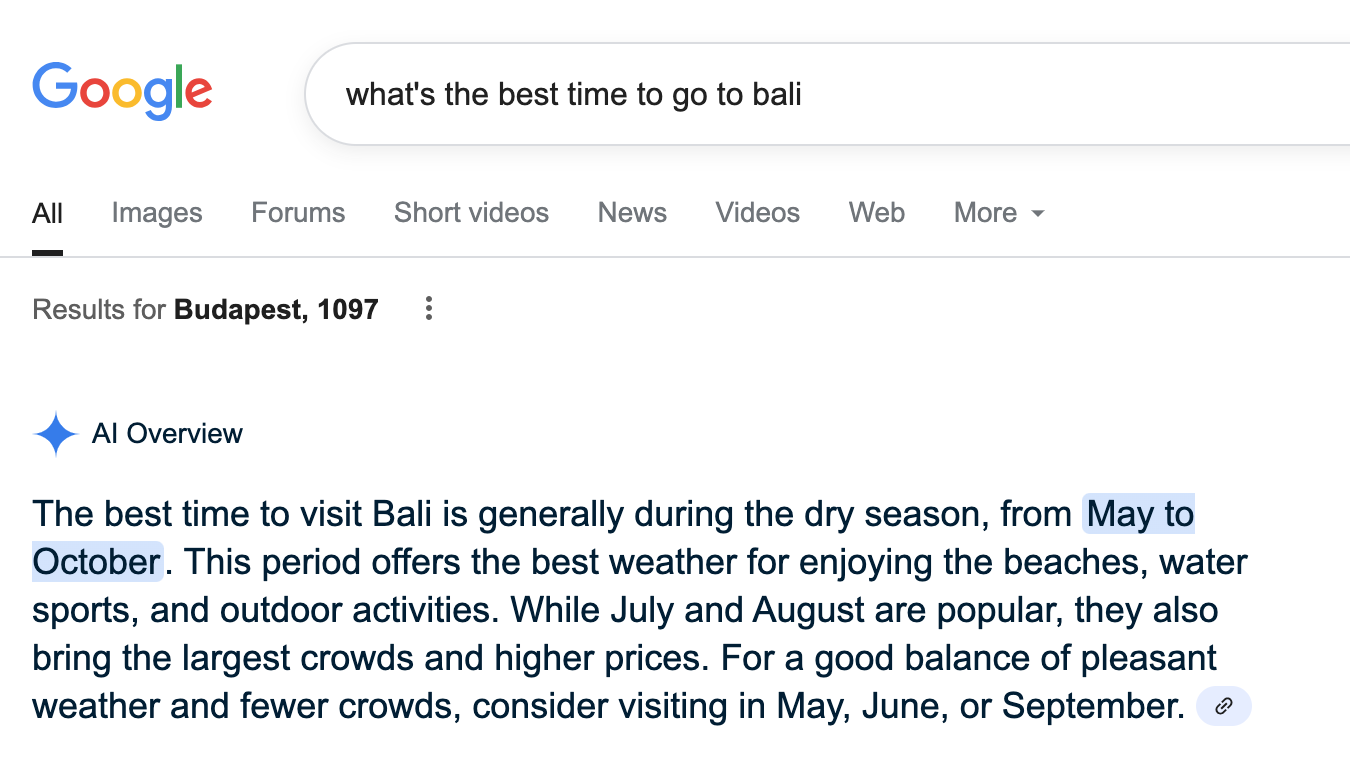
So, is this the end of SEO as we know it? Not exactly. In fact, SEO still matters—a lot (we asked AI overviews directly).
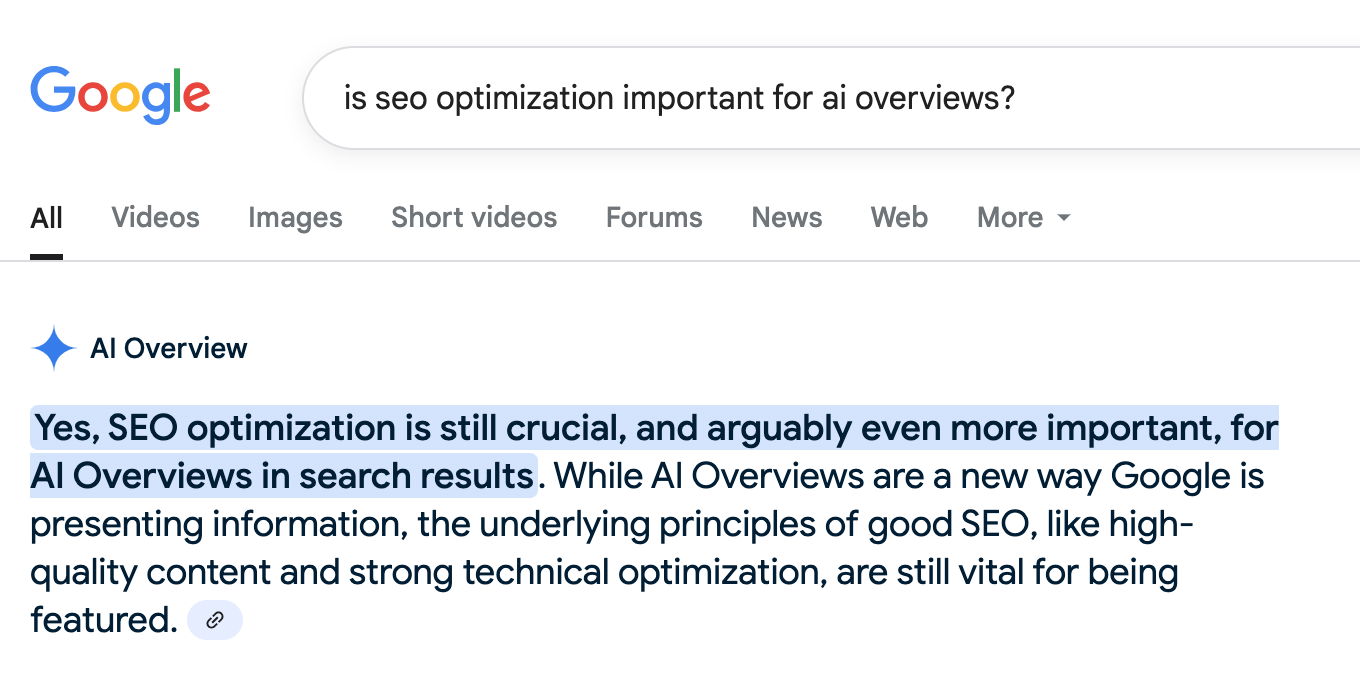
This means your classic SEO efforts now play a new role: feeding the artificial intelligence travel agent. SEO has become part of a larger strategy we can call AI optimization.
In this article, we’ll break down AI in travel industry, how it’s changing customer behavior, and what you can do to make sure your agency still shows up—both in AI tools and in the minds of your audience.
The good news is that just because AI plans trips now doesn't mean it’s time to shut down your travel agency. As of December 2023, 47% of people—especially Millennials and Gen Z—still trust online or offline travel agents when booking travel.
The bad news is that as a travel agent you need to review what value you can offer to your clients and how you stay visible online. Here’s what we learned from a fascinating Skift Travel Podcast with Thomas Riner, a travel-focused investor at Altimeter Capital. His take on artificial intelligence in travel and hospitality industry is clear: the disruption isn’t coming—it’s already here.
What does this mean?
AI is raising the bar for travel companies. Your job now is to make sure AI sees and recommends your business. That means adapting your content, your structure, and your presence across the web so that AI can “read” your brand. But more importantly, you need to focus on quality interaction with customers, because the same old word-of-mouth still matters.
Next, we’ll cover how to do exactly that—starting with how to prepare your website and content for AI visibility.
The way AI tools like ChatGPT, Gemini, and Perplexity choose what to recommend is completely different from how search engines like Google worked for the last two decades. Instead of ranking web pages based on links and domain authority, AI models read, summarize, and contextualize. This means that even beautifully designed websites with great SEO can get ignored—if their content isn’t useful, current, or structured in a way AI understands.
Let’s unpack how it works.
When you ask an AI assistant for travel advice, it doesn’t rank websites. It pulls from its internal knowledge base, trained on billions of pieces of information, and constructs a response based on context, tone, accuracy, and relevance.
AI models use a process called tokenization—breaking down language into meaningful chunks (tokens) and assigning weight based on how likely each one is to follow another. That’s how they generate answers that sound conversational and informed.
But here’s the catch: AI will only “remember” information that’s been well-structured, repeated across multiple reliable sources, and cited in places it considers trustworthy.
Learn more: OpenAI Technical Paper on GPT-4.
To understand how AIs build their internal “understanding” of a brand or destination, we can look at the PESO Model©, created by Gini Dietrich, which stands for Paid, Earned, Shared, and Owned media. This framework, originally used by PR pros, is now critical in AI optimisation:
Recent research found that AI models like ChatGPT rely on earned media the most (61%), followed by owned content (44%), while shared and paid media contribute far less(social media accounts for less than 1%) That means if your travel brand was featured in The Guardian, Condé Nast Traveler, or a top industry blog, AI is much more likely to include you in its recommendations.
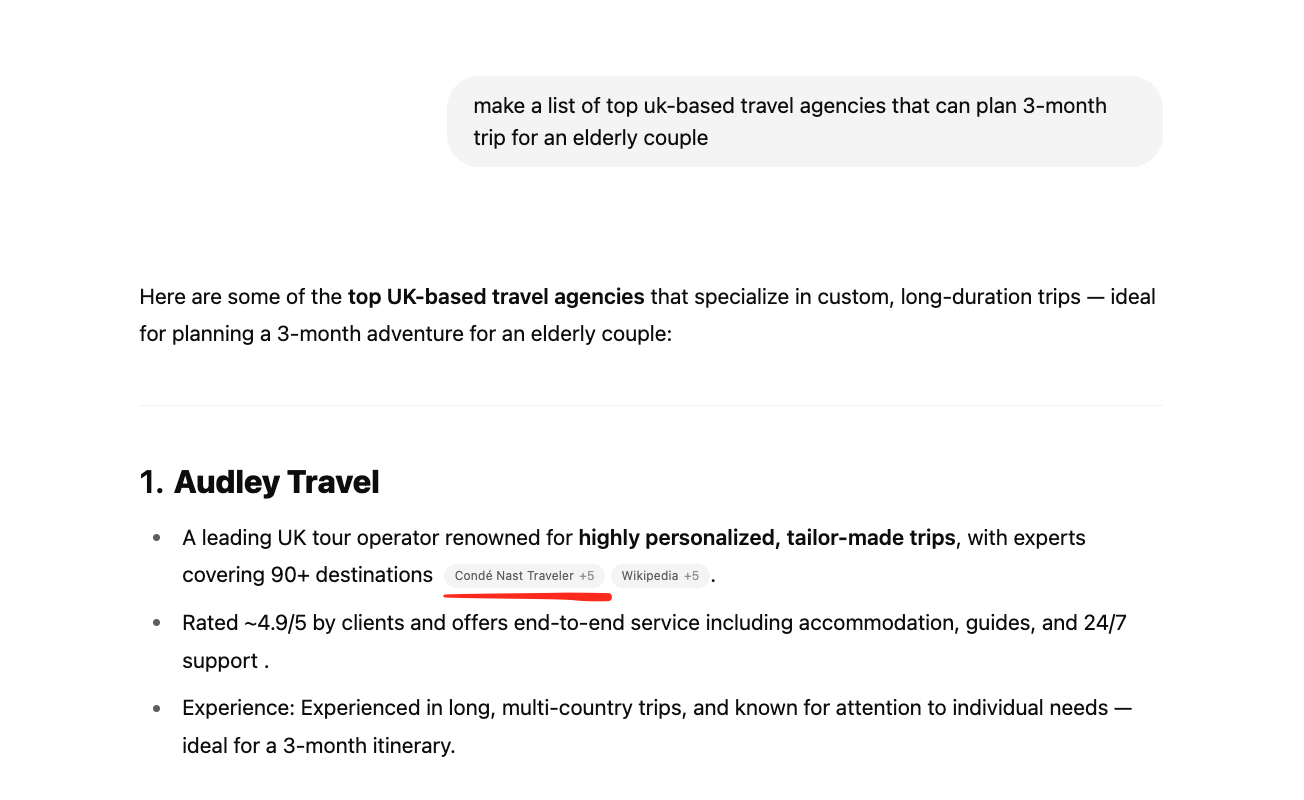
To get the most out of AI in the travel industry, focus on securing features in top-tier travel publications and ensure your own website content is clear, accurate, and up to date.
AI tools are picky about their sources. According to a 2024 study by SE Ranking, AI Overviews pull over 90% of their links from top 10 Google results and favor websites with high trust signals, like:
That means where your travel brand is mentioned matters just as much as how often.
For example, if your hotel is included in a “Best Beach Resorts” roundup on Condé Nast, and that article is referenced by Wikipedia or shared widely on Reddit and YouTube, AI is more likely to surface your name—even without direct backlinks.
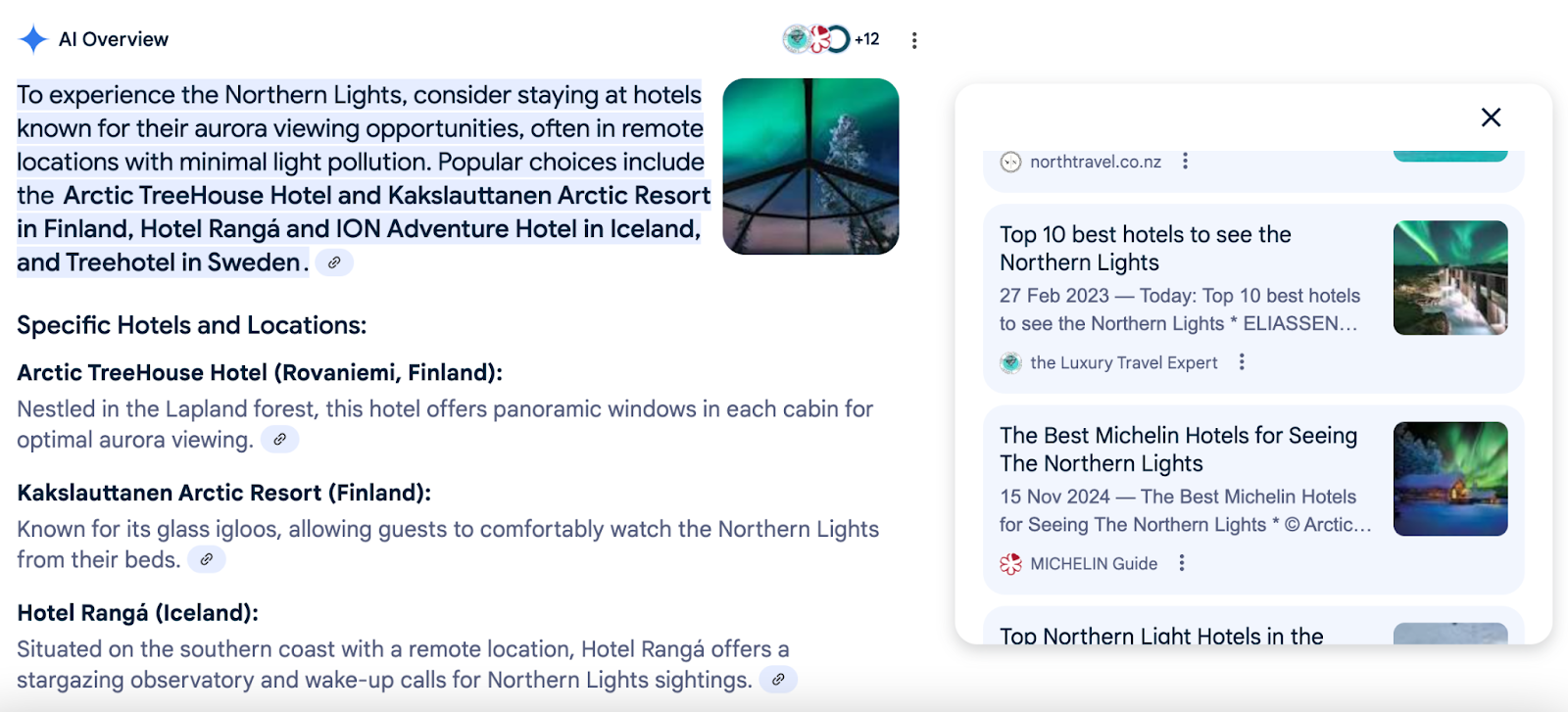
This means you should focus on PR activities more, and link building is much more about quality now.
Based on what we learned about AI search, here are the concrete steps to take next:
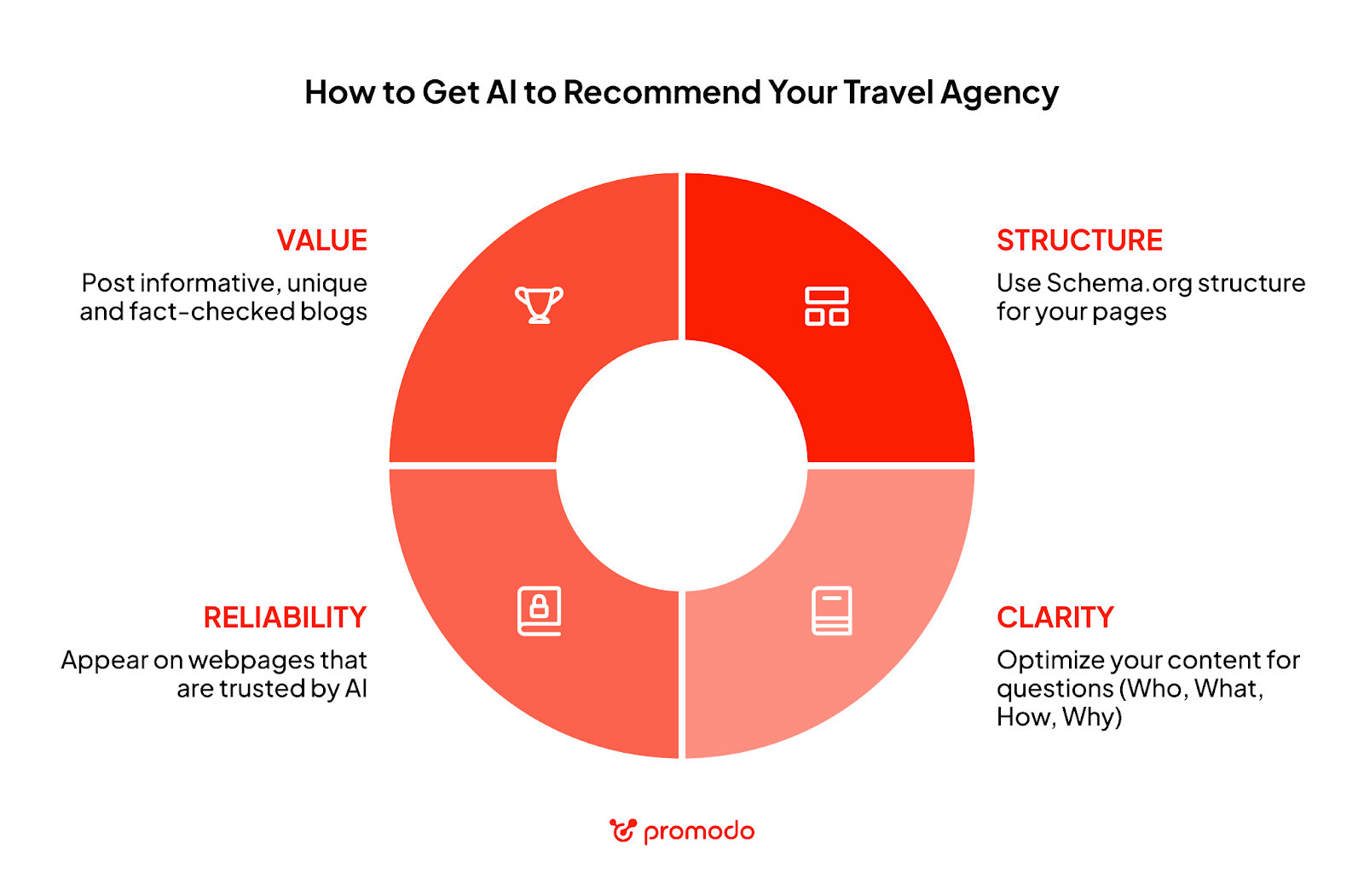
When large language models pull information, they often turn to your owned media—your blog, landing pages, product listings, and structured content. But to be considered a trusted source, your content needs to be clear, well-structured, and machine-readable.
Here is how you make your travel agency website AI-friendly:
AI models analyze the structure, hierarchy, and clarity of the content. To get noticed:
Break content into sections with consistent formatting. A post titled “Best Time to Visit Bali” should include H2s like Weather by Season, Festivals, and Tips for Families. This makes it easier for AI to extract answers to specific user queries.
Create a group of interlinked articles around each destination or service. For example, a main post about “Traveling to Greece” can link to subtopics like Greek Island Hopping, Athens City Guide, and Family Resorts in Crete.
AI rewards articles that answer questions thoroughly. Include stats, comparisons, or even original research if possible.
You might also want to read:
GPTSearch: SEO Optimization for Ranking in ChatGPT
Effective Travel Ads: Examples and Ideas
8 Digital Marketing Strategies for Travel and Tour Agencies
Tourism Marketing Benchmarks 2025
Your product pages—whether it's a hotel, tour package, or itinerary—need to provide structured and useful information that AI can easily interpret and summarize.
Summarize key features like location, amenities, price ranges, cancellation policies, and accessibility. AI tools love skimmable data formats.
Include a list of commonly asked questions such as “Is airport transfer included?”, “What’s the cancellation policy?”, or “Is this tour suitable for children under 5?” These increase your chances of being featured in AI-generated answers.
Describe what's in your photos—“Sunset over Santorini from a private infinity pool at Hotel XYZ”—to help AI understand visual content.
Share your agency’s local knowledge, unique tips, or real traveler experiences. AI is more likely to use content that adds something new to the conversation.
To really stand out to AI (and Google), your site needs to speak their language—literally.
Helpful resource: Google Search Central – How Search Works
Add structured data tags to define your content.
These help AI identify what your page is about and match it with user questions more accurately.
Ensure AI crawlers can reach your content. Confirm your site doesn’t block bots like GPTBot, ClaudeBot, or Google-Extended in your robots.txt file. These are the crawlers for ChatGPT, Claude, Gemini, and Perplexity.
You can monitor this by checking your server logs or using SEO tools like Screaming Frog or Ahrefs.
AI Overviews prioritize fresh content. Add the year to your blog titles (e.g., “Top Honeymoon Destinations in 2025”) and refresh outdated information regularly.
If your website is the foundation of AI visibility, then earned media and off-site content are your secret weapon. While classic link-building once focused on passing SEO value, today it plays a much bigger role: it teaches AI what your brand is about. Every mention in a trusted publication, every guest article, and every roundup you appear in becomes training data for AI models.
“Best of” lists are gold for AI training. When users ask “What are the best boutique hotels in Croatia?” or “Top ski resorts in the Alps?”, AI often references curated lists from trusted publishers.
To get included:
Guest articles published on trusted blogs, travel magazines, or business publications can become direct reference material.
Tools like HARO (Help a Reporter Out) or Qwoted can connect you with journalists looking for expert voices.
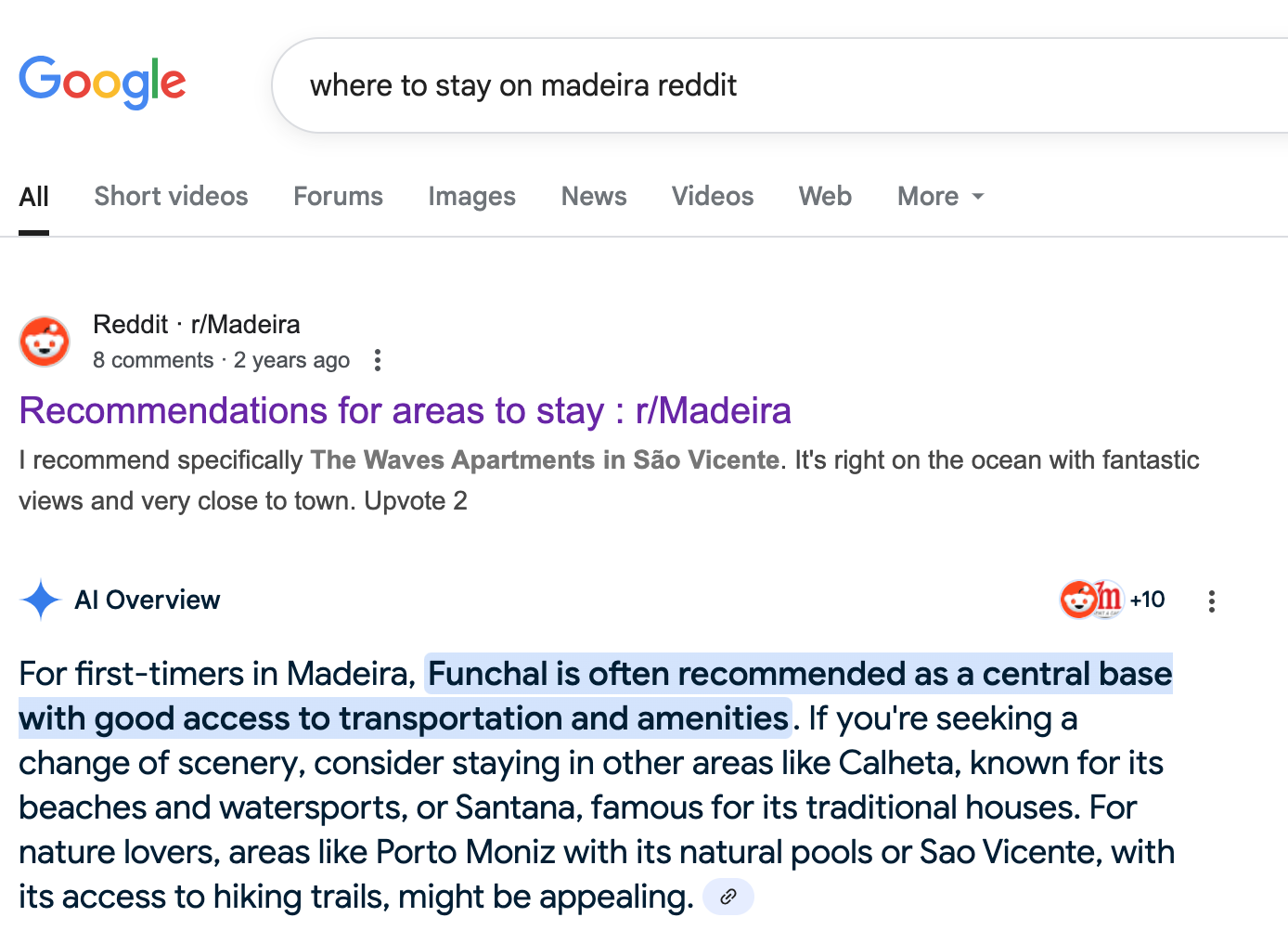
Reddit and Quora are highly valued by LLMs. While direct advertising and posting links in your answer is usually strictly forbidden by moderators of these platforms, you can still create a profile and place a link to your website in the profile description. After that, focus on giving helpful suggestions to people who ask travel-related questions.
Measuring how your travel brand shows up in AI search is still tricky - the way we build analytics for AI search is being created now. You can use tools like Ahrefs or SE Ranking to see which of your pages show up in Google’s AI Overviews, or just search your key travel queries (like “best family resorts in Italy”) and look at what kind of content gets featured.
The best thing you can do right now is match your content to what’s being shown. Improve your blog post, get featured in a trusted article, or make sure your FAQ answers are crystal clear. Focus on getting into the sources AI already pulls from.
Unlike people, AI can’t browse your social media or read between the lines. It looks for clear signs that your travel business is real, reliable, and safe to recommend. If those signals aren’t easy to find, your brand might not show up—no matter how good you are.
Make sure your website and business listings clearly show things like awards, certifications, and ratings. Keep your profiles up to date on trusted sites like Google Business, TripAdvisor, Yelp, and Booking.com. These platforms often appear in AI search results, so it’s important your brand looks solid and consistent everywhere.
The easiest way to boost your reputation is by getting honest, helpful reviews on the sites AI trusts most. Focus on:
These steps help AI see your business as trustworthy—and more likely to show it in results.
While we’re still waiting on strong data to fully explain what it takes to get featured in AI search, the direction is clear—and the brands that start adapting now will be ahead of the curve. By following the steps we’ve outlined, you’re already doing what matters most: making it easy for AI(and potential clients) to find and trust you. Remember to approach this creatively too, with things like a chatbot for travel agency or AI recommendation engine offered as a freebie to your potential clients.
At Promodo, we’re already helping our clients get recommended by AI tools like ChatGPT and Google’s AI Overviews. If you need a hand with optimizing your travel brand for both search engines and AI, we’re here to help. Let’s make sure you’re not just visible—but the one that gets picked.
Take a look at our latest case studies:
[[ROW-START]]
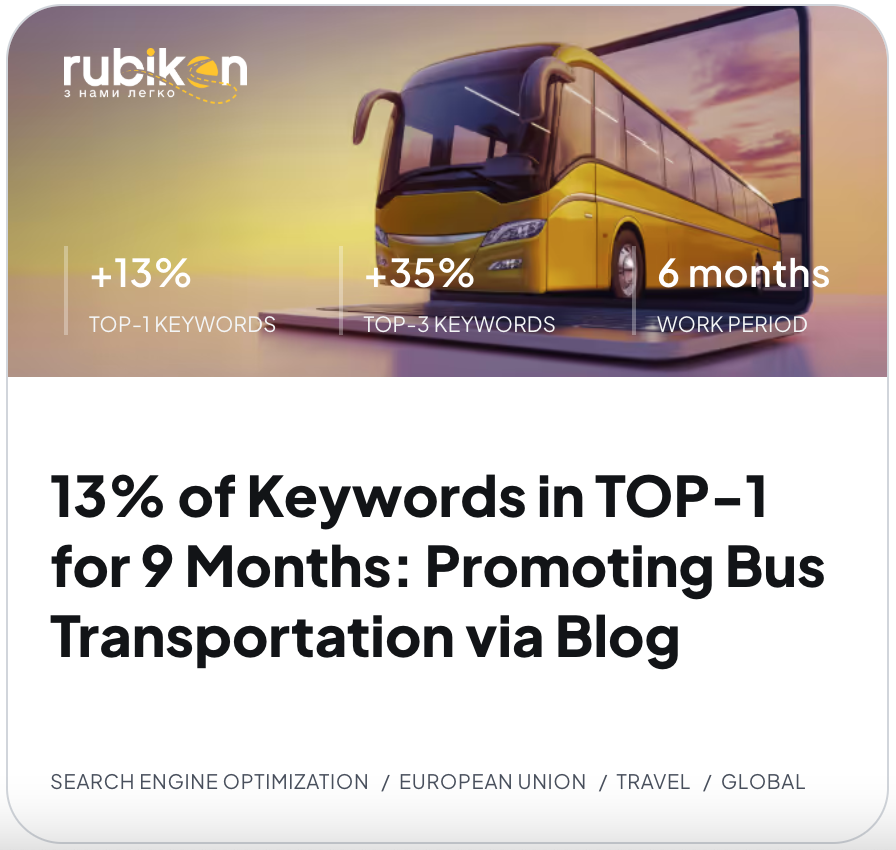
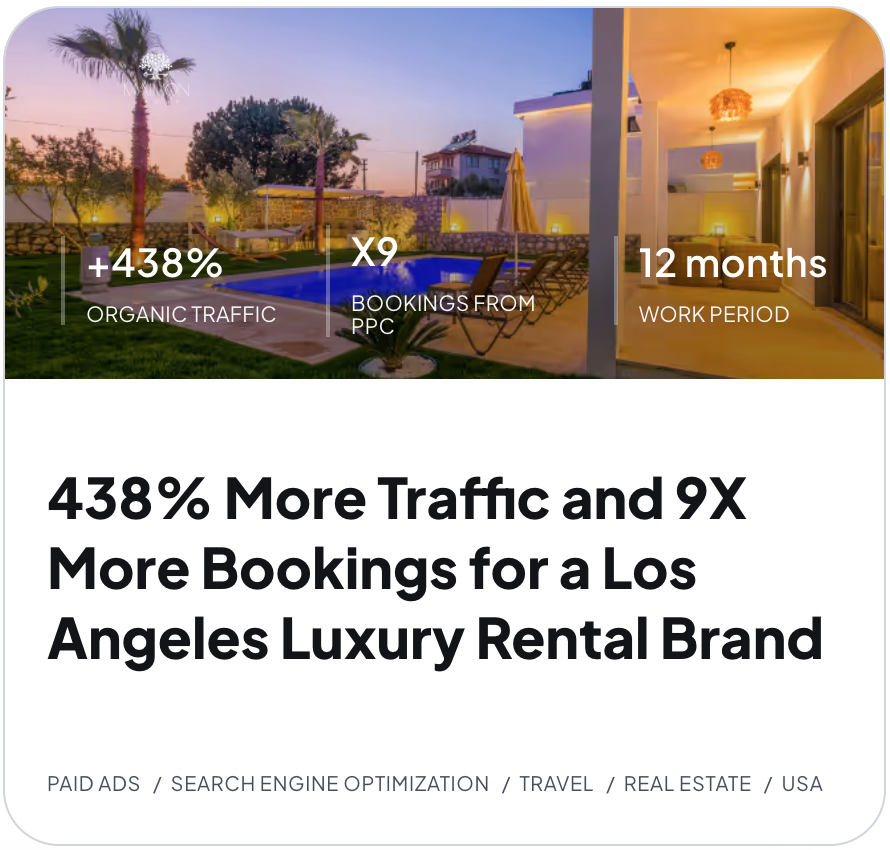
[[ROW-END]]
You may also like
Choose quality and trusted services to improve the presence of your company on the Internet, and feel free to contact our UK team if you have any questions.

Holiday packages are now booked online in 80% of all cases. Strong digital marketing game is a must to be visible in the overcrowded tourism industry.

Use this checklist to diagnose and fix issues, and start converting more visitors into customers on your Shopify store.

While X-Day is soon approaching, every online business should do its best to migrate to Google 4 Analytics (GA4) as soon as possible.

With a strong sales ratio of 37.01%, luxury real estate is steadily establishing itself as the Seller's market.
We at Promodo are ready to help you improve your performance across all digital marketing channels.
Get started
